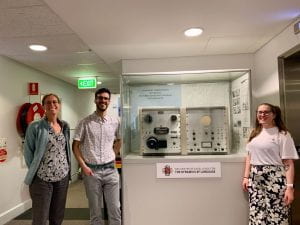
Upcoming event: seminar by Lauren Harrington (Univ. York)
On Friday March 24th, Hub visitor Lauren Harrington will talk about Transcription of indistinct audio: are phoneticians at an advantage?
This will be an in-person event at The University of Melbourne (Babel Building, rm 407) at, 3.15pm. There will also be an online option (just get in touch with Hub members for the link).
Abstract:
When very poor quality audio (also referred to as indistinct audio) is admitted as evidence in courts of law, it is often accompanied by an orthographic transcript to help members of the jury hear the speech content of the audio recording. An issue with this practice is that transcripts can be highly influential, particularly in the case of indistinct audio, and can subconsciously guide listeners to hear words that aren’t there in the audio signal. It is therefore extremely important that the transcripts presented to juries are reliable. The Research Hub for Language in Forensic Evidence argues that police detectives should not be producing transcripts of indistinct audio, which poses the question: who should? This study explores whether training in phonetics gives participants an advantage when transcribing indistinct audio without any contextual information.
This talk will present the preliminary results of an experiment in which 9 phoneticians (from Australia and the UK) transcribed a 3-minute recording of indistinct audio. Performance was analysed by comparing participants’ transcripts with a reference transcript produced by the Research Hub. These results are then compared with those of a previous experiment run by the Research Hub, in which a number of non-phonetician participants transcribed the same audio recording. The implications of the results will be discussed in relation to the evidence-based method proposed by the Research Hub for Language in Forensic Evidence.
This talk will present the preliminary results of an experiment in which 9 phoneticians (from Australia and the UK) transcribed a 3-minute recording of indistinct audio. Performance was analysed by comparing participants’ transcripts with a reference transcript produced by the Research Hub. These results are then compared with those of a previous experiment run by the Research Hub, in which a number of non-phonetician participants transcribed the same audio recording. The implications of the results will be discussed in relation to the evidence-based method proposed by the Research Hub for Language in Forensic Evidence.
